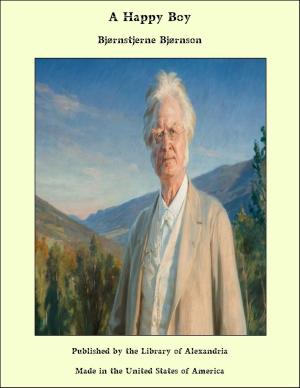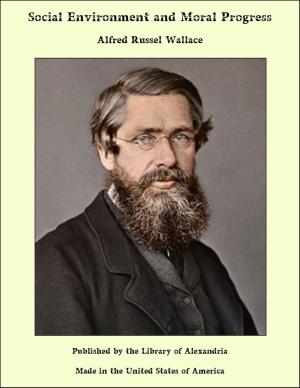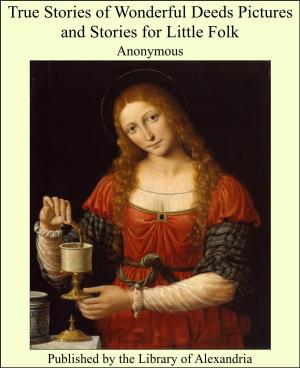| Author: | Henry Anderson Bryden | ISBN: | 9781465593450 |
| Publisher: | Library of Alexandria | Publication: | March 8, 2015 |
| Imprint: | Language: | English |
| Author: | Henry Anderson Bryden |
| ISBN: | 9781465593450 |
| Publisher: | Library of Alexandria |
| Publication: | March 8, 2015 |
| Imprint: | |
| Language: | English |
It was a fine, hot July day on the banks of the Severn river at Tewkesbury, that quaint, old-world, and somewhat decayed town, which offers to the inspection of the visitor and the archæologist some of the most ancient and interesting buildings to be seen in any part of broad England. There was some stir on the banks of the river, for two public schools, one of them situate in the west of England, the other hailing from a Midland shire, were about to contest with one another in their annual boat race. From the Western school a considerable contingent of lads had come over; these were discussing, with the enthusiasm of schoolboys, the prospects of the races. On the banks, gathered near the winning-post, were also to be seen a number of other spectators, some from the town itself, others from the neighbouring country-side. The fateful moment at length had come; the two boats were to be seen in the distance, their oarsmen battling with one another with all the desperate energy that youth and strength and an invincible determination could put into their task. As they drew nearer it was to be seen that the Midland school was leading by nearly half a length. A quarter of a mile remained to be rowed. Loud cries from the Western school resounded along the banks. Hope struggled against hope in every youthful breast; yet it seemed that if the oarsmen of the Western school were to make that final effort for which they were famous, it was now almost too late. But, no! the Western stroke is seen to be calling upon his crew; their flashing blades dip quicker, and yet quicker; they are well together, all apparently animated by the vigour and the reserve of force displayed by their leader. Foot by foot they diminish the lead of their adversaries, who are striving desperately, yet ineffectually, to retain their advantage. A hundred yards from the winning-post the Western lads are level; and as the post is passed they have defeated their adversaries, after one of the finest races ever rowed between the two schools, by a quarter of a length. Amid the exultant and tremendous cheering that now greets the triumph of the Western school, both crews paddle to the boat-house and disembark. The boats are got out and housed, and all but the Western captain and stroke, Guy Hardcastle, are inside the boathouse, bathing and changing their clothes. Guy Hardcastle, a strong, well-set-up lad of seventeen, lingers on the platform in conversation with his house-master, Mr. Brimley-Fair, who has come down to congratulate him on his victory. He is a good-looking lad, fresh complexioned, with fair brown hair, a firm mouth, and a pair of steady, blue-gray eyes, which look the world frankly in the face, with an aspect of candour, friendliness, and self-reliance that most people find very attractive. While master and boy are talking together for a brief minute or two, a sudden cry comes from the river, followed by others. They look that way, and see instantly the reason of the outcry. Some country people, rowing across from the other side, are evidently not accustomed to boating. Two of them attempt to change places in mid-stream: they are womenfolk; they become alarmed and shift in their places, the heavily laden boat is upset, and half a dozen people are struggling in the water.
It was a fine, hot July day on the banks of the Severn river at Tewkesbury, that quaint, old-world, and somewhat decayed town, which offers to the inspection of the visitor and the archæologist some of the most ancient and interesting buildings to be seen in any part of broad England. There was some stir on the banks of the river, for two public schools, one of them situate in the west of England, the other hailing from a Midland shire, were about to contest with one another in their annual boat race. From the Western school a considerable contingent of lads had come over; these were discussing, with the enthusiasm of schoolboys, the prospects of the races. On the banks, gathered near the winning-post, were also to be seen a number of other spectators, some from the town itself, others from the neighbouring country-side. The fateful moment at length had come; the two boats were to be seen in the distance, their oarsmen battling with one another with all the desperate energy that youth and strength and an invincible determination could put into their task. As they drew nearer it was to be seen that the Midland school was leading by nearly half a length. A quarter of a mile remained to be rowed. Loud cries from the Western school resounded along the banks. Hope struggled against hope in every youthful breast; yet it seemed that if the oarsmen of the Western school were to make that final effort for which they were famous, it was now almost too late. But, no! the Western stroke is seen to be calling upon his crew; their flashing blades dip quicker, and yet quicker; they are well together, all apparently animated by the vigour and the reserve of force displayed by their leader. Foot by foot they diminish the lead of their adversaries, who are striving desperately, yet ineffectually, to retain their advantage. A hundred yards from the winning-post the Western lads are level; and as the post is passed they have defeated their adversaries, after one of the finest races ever rowed between the two schools, by a quarter of a length. Amid the exultant and tremendous cheering that now greets the triumph of the Western school, both crews paddle to the boat-house and disembark. The boats are got out and housed, and all but the Western captain and stroke, Guy Hardcastle, are inside the boathouse, bathing and changing their clothes. Guy Hardcastle, a strong, well-set-up lad of seventeen, lingers on the platform in conversation with his house-master, Mr. Brimley-Fair, who has come down to congratulate him on his victory. He is a good-looking lad, fresh complexioned, with fair brown hair, a firm mouth, and a pair of steady, blue-gray eyes, which look the world frankly in the face, with an aspect of candour, friendliness, and self-reliance that most people find very attractive. While master and boy are talking together for a brief minute or two, a sudden cry comes from the river, followed by others. They look that way, and see instantly the reason of the outcry. Some country people, rowing across from the other side, are evidently not accustomed to boating. Two of them attempt to change places in mid-stream: they are womenfolk; they become alarmed and shift in their places, the heavily laden boat is upset, and half a dozen people are struggling in the water.

![Cover of the book Droll Stories [V. 2] by Henry Anderson Bryden](https://www.kuoky.com/images/2015/march/300x300/9781613101506-cTHn_300x.jpg)













